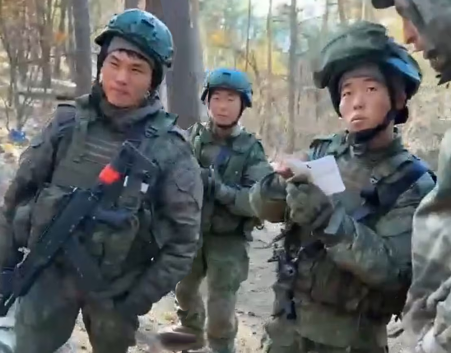Anders Åslund
Anders Åslund is a senior fellow at the Stockholm Free World Forum, Adjunct Professor at Georgetown University and a leading specialist on Eastern Europe’s economies.
It is with sadness and frustration that my Ukrainian friends and I look back on 2024.
JOIN US ON TELEGRAM
Follow our coverage of the war on the @Kyivpost_official.
The West could have done so much more. The American republicans wasted half a year in not giving Ukraine the necessary financing and arms. Then, the German and American administrations held back key missiles from Ukraine, while the Russians bombed Ukrainian cities and infrastructure. Admittedly, the Armed Forces of Ukraine managed to hold the front, but so many Ukrainians were killed or maimed. The international community discusses reconstruction, when they should focus on Ukraine winning the war and defeating Russia.
Yet, the economic record is surprisingly good.
Western financial assistance covered the whole of Kyiv’s budget deficit with some $40 billion. Inflation rose to 11% but remains moderate and the economic growth will probably be 4%. In June, the G7 promised a loan of $50 billion on the basis of the return on the frozen Russian Central Bank reserves, which was a big step forward. The US has completed its $20 billion and the other G7 countries are about to deliver the rest. In 2025, the West should take the decisive step and seize all the $300 billion of frozen Russian Central Bank reserves and deliver them to Ukraine so that Ukraine receives sufficient funds to win the war.

Which Foreign Leaders Are Invited to Trump’s Inauguration?
Gennadiy Chizhikov
Gennadiy Chizikov is President of the Chamber of Commerce and Industry of Ukraine
2024 was the year when we finally realized we were in the middle of a long marathon. War is not a sprint distance. I have been realizing this since 2014.
The good news is that we are getting stronger. The endurance of Ukrainians is forced. But it is there. The normalization of war is a cruel reality. It’s the only way to go. Businesses and citizens are adapting to the pressure to move forward.
We are succeeding. The number of companies, both Ukrainian and foreign, operating in our market has been stable for almost the entire year. Exports are growing thanks to the sea corridor. There is more business communication.
People, entrepreneurs, and young people are looking for support in communities. They are looking for a force that will take them further. We see a growing demand for offline communication, consolidation of industry and niche communities.
This trend will intensify in 2025. Together we can do more.
Roman Waschuk
Roman Washchuk is Ukraine’s Business Ombudsman and former Canadian Ambassador to Ukraine.
In 2024, Ukraine and its government ticked pretty much every legislative and regulatory box there was: IMF markers, EU Ukraine Facility conditionalities – dozens of them. That political and institutional coordination effort is in itself a major governance achievement in wartime. But while laws and regulations have been passed, implementation in everyday administrative life has lagged, or been slow-walked.
As an Ombudsman institution, we live in that gap (sometimes, that chasm) between legislative theory and bureaucratic practice. It’s nice that Ukraine’s Tax and Customs Codes proclaim the presumption of legality in favor of the taxpayer – but authorities often act on an assumption of business bad will instead. With Ukraine’s EU accession talks now opening chapters on the fundamentals of governance, the country’s implementation gap will be front and center in 2025. The business community and international partners will also be keenly following delivery on 2024 commitments, such as the independent hiring processes for management reboots at the Bureau of Economic Security and State Customs Service.
Systemic problems require institutional solutions. Political quick fixes for individual industries and companies might seem more politically attractive but lack longer-term staying power and don’t reinforce the resilience and solidarity that Ukraine will need more than ever in the challenging year ahead.
You can also highlight the text and press Ctrl + Enter













